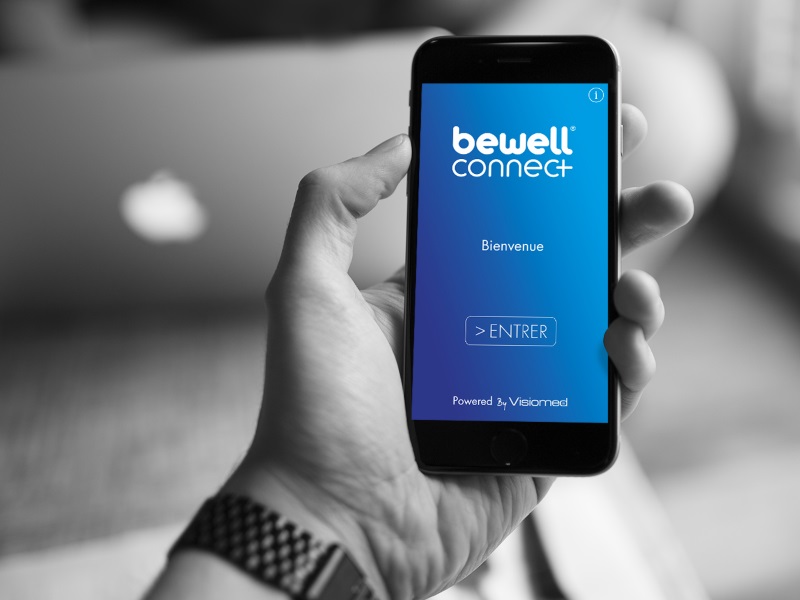TVCE – A new smartphone-enabled technology and wearable sensors that examine, diagnose and even treat many conditions and ailments has been launched in the Consumer Electronics Show in Las Vegas.
The Consumer Electronics Show in Las Vegas saw the debut of new applications for “virtual checkups” and ways to treat pain, manage stress and monitor conditions such as diabetes.
French-based health group VisioMed introduced its Bewell Connect health management suite, which includes a smartphone app that communicates with its connected blood pressure and glucose monitor, thermometer and blood oxygen sensor.
“If I have all these indicators I can get a pretty good assessment of your health,” said Benjamin Pennequin, research director for the group.
“This is like a personal virtual checkup.”
But the app goes further: If you have symptoms such as chest pain or shortness of breath, it poses a series of questions and delivers potential diagnoses, and allows the user to share the data with a physician.
And a simple button on the app can connect you to a doctor: In France the app locates nearby providers in the national medical service, and Bewell is working to establish a network of connected physicians in the United States.
A hand-held connected device unveiled by Las Vegas-based startup MedWand allows consumers to measure temperature, heart rate, oxygen levels and includes a camera to examine the throat and inner ear to enable doctors to perform an exam online.
Lead engineer Terry MacNeish said the data from the $250 gadget allows for a more thorough exam than most other kinds of telemedicine.
“If you’re just Skyping your doctor, it’s just medical chat,” MacNeish said. “With this we can get a picture of your tonsils, we can take your temperature. It’s much more precise.”
MedWand is in the pre-approval phase for clearance by the US Food and Drug Administration, and is expected to complete the process in 2016, according to inventor and CEO Samir Qamar.
MedWand is working with existing telemedicine doctors and hopes to start selling the device in June in the United States and globally.
MacNeish said insurance companies are generally positive towards the product because a telemedicine exam costs less than one in a doctor’s office.
















